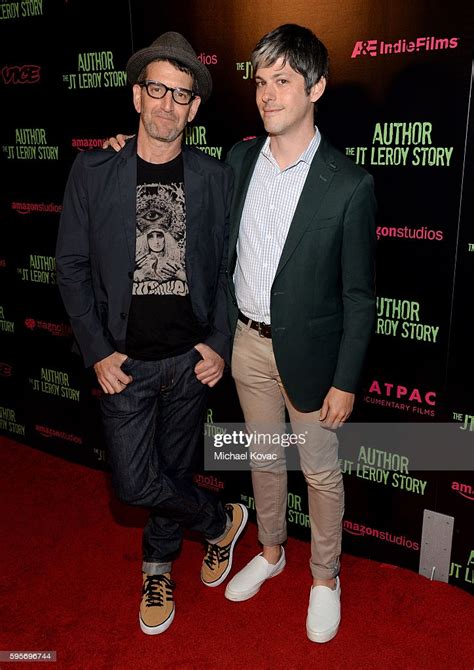A Quote by Deborah Eisenberg
One of the amazing things about writing fiction is that you do get to be other people.
Quote Topics
Related Quotes
I'm so deeply interested in what it feels like to be other people that I get to operate under the illusion when I'm writing fiction that I'm not really revealing that much about myself. But, of course, I am, and I know that I am. And yet there's this sort of membrane that I get to work behind as I write my fiction, and I love it.
Academic writing you have to get right. Fiction you have to get plausible. And there's a world of difference. In a way, if someone says this didn't feel exactly right, I don't care. But that is not okay to do in academia - it's not about feeling. You want to establish a pretty solid case. So did this allow me to express things differently? Absolutely. Another thing I've been thinking about as an academic: our writing style is expository, and in fiction, withholding information matters quite a bit. Withholding things in academia - there's no place for that!
I often tell people who want to write historical fiction: don't read all that much about the period you're writing about; read things from the period that you're writing about. There's a tendency to stoke up on a lot of biography and a lot of history, and not to actually get back to the original sources.
When I have a writing workshop, I like to have people that are anthropologists and people who are poking around in other fields, I like to have them all in the same workshop, and not worry about genre. I like to mix it up, because the kind of comments you can get from a fiction writer about your poetry are going to be very different than what you'll get from a poet. Or the comments you'll get from a filmmaker about your performance are going to be very different. My writing workshop is about mixing it up, cross-pollinating, not only in genres but in occupations.
Writing fiction is very different to writing non-fiction. I love writing novels, but on history books, like my biographies of Stalin or Catherine the Great or Jerusalem, I spend endless hours doing vast amounts of research. But it ends up being based on the same principle as all writing about people: and that is curiosity!
A couple of pieces of advice for the kids who are serious about writing are: first of all, to read everything you can get your hands on so you can become familiar with different forms of writing: fiction, non-fiction, poetry, journalism. That's very important. And also keep a journal. Not so much, because it's good writing practice. Although it is, but more because it's a wonderful source of story starters.
THE MAGIC AND THE DANGER OF FICTION IS THIS: it allows us to see through other eyes. It takes us to places we have never been, allows us to care about, worry about, laugh with, and cry for people who do not, outside of the story, exist. There are people who think that things that happen in fiction do not really happen. These people are wrong.
But I think writing should be a bit of a struggle. We're not writing things that are going to change the world in big ways. We're writing things that might make people think about people a little bit, but we're not that important. I think a lot of writers think we are incredibly important. I don't feel like that about my fiction. I feel like it's quite a selfish thing at heart. I want to tell a story. I want someone to listen to me. And I love that, but I don't think I deserve the moon on a stick because I do that.






































